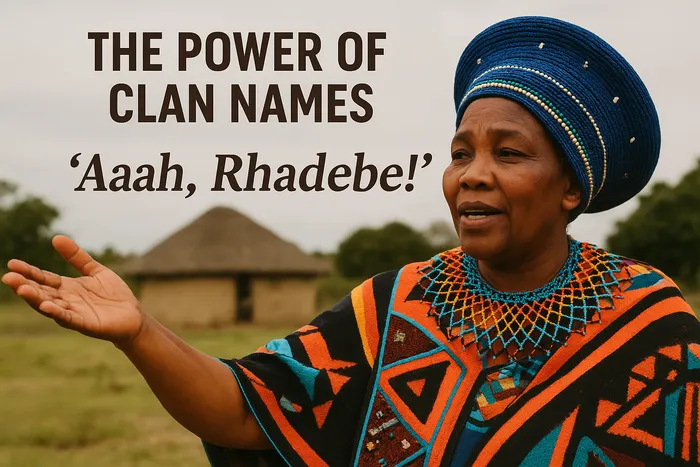From tongue to heart: The magic of clan names

Clan names are not the same as surnames. They carry the weight of lineage.
Image: Supplied
KwaXhosa, there is no greater sign of respect than greeting someone by their clan name (isiduko). It is not just a polite introduction; it is recognition of lineage, history, and belonging.
To carry an isiduko is to carry the story of those who came before you, their struggles, victories, and journeys. It is oral history woven into everyday language, a living reminder that we are never only individuals, but part of something greater.
When you hear your clan name spoken aloud, it is as if the voices of your ancestors are being called back into the present. It is a name that commands respect, binds strangers as kin, and ensures the past continues to breathe through the generations.
Growing up, many of us remember how our elders would pause before greeting someone. They wouldn’t just say “Molo” (Hello) or “Unjani?” (How are you?), they would call a clan name: “Aaah, Rhadebe!” or “Camagu, Bhayi!” And with that single word, strangers became kin.
Clan names are not the same as surnames. They carry the weight of lineage, telling us who we are and where we come from. They are our living archives, history not written in books, but passed from tongue to ear, from elder to child.
But how does one know their clan name? It begins at birth. Every child is born of a mother and a father, each with their own clan name. If the parents are married, the child takes the clan name of the father. For example, if the mother is uMamgebe and the father is uMcwerha, the child is welcomed into the world as uMcwerha, carrying the father’s ancestral name forward.
If the parents are not married, the child will often take the mother’s clan name, and so the lineage continues through her side. In this way, clan names are more than just names; they are the roadmap of family, blood, and belonging.
There was a time when children would sit at their grandmother’s feet, learning not just their surname but the names that carried their bloodline.
To forget your clan name was unthinkable; to misuse another’s was an insult too heavy to bear. Clan names were - and still are - our unwritten archives, telling of migrations, victories, and survival.
Mna ndinguMamcwerha, uMagxarha, Umahlahlana, ndizalwa nguMamgebe!
Related Topics: